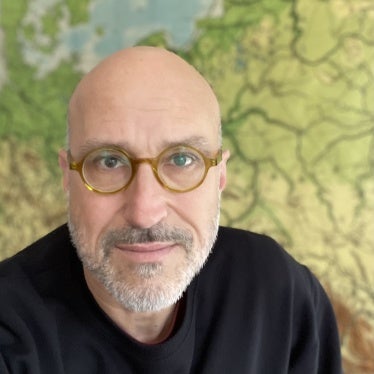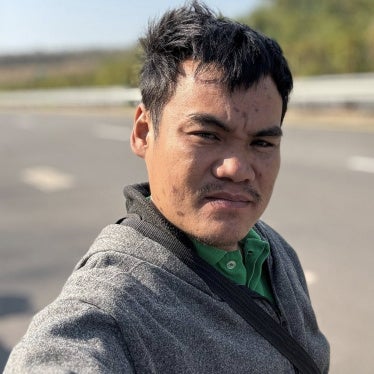Some dictators are often in the news. But the names of other despots rarely appear in mainstream coverage. Their countries may have faint historical links to Western countries. Or their people aren’t in the streets, so TV news lacks the visuals it needs. Or the places simply aren’t Western government priorities. What’s more, many authoritarians ban the foreign press: The lack of international coverage is by design.
But just because such rulers are out of the global spotlight doesn’t mean their governments’ abuses are less worthy of concern. In fact, lack of international awareness means that rights abuses are more likely.
Here are five cases that we should all know more about, and some thoughts about their similarities, and the tough questions such leaders pose.
• Gurbanguly Berdymukhamedov, Turkmenistan
All that most outsiders know of this Central Asian nation are off-beat news items regarding the cult of personality surrounding Berdymukhamedov—known as “Arkadag,” or “the Patron”—who has erected a vast golden statue of himself on horseback atop a marble cliff. Others might have seen an even stranger golden statue to his favorite dog.
But the absurdity of Berdymukhamedov’s excesses is far from funny for the people who live there. It’s a human rights black hole. Under Berdymukhamedov, there are no free media, and the government keeps access to information in its grip. It also imposes punitive restrictions on religious freedom, and forget about freedom of association: Independent groups are not allowed.
Anyone who tries to be a critic or activist faces serious government reprisals. Even those living abroad are not safe. Dozens of people have been “disappeared” in Turkmenistan, including after formal court convictions. International human rights groups, which are not permitted to step foot in the country, spend years trying to confirm if these people are still alive. When they occasionally uncover what happened, it’s often a grim story of torture and death.
• Isaias Afewerki, Eritrea. This northeast African nation came to the attention of human rights monitors recently, after the military massacred hundreds of people, including children, last November in the city of Axum in neighboring Ethiopia, as reported by Amnesty International and Human Rights Watch.
More commonly, the Eritrean military abuses its own personnel, unnoticed in reclusive Eritrea. The country’s national service system is awful, almost beyond description. The authorities conscript Eritreans, both men and unmarried women, including students, and they have to stay in the military or civil service indefinitely, with no say in their work duties or location, and often face inhuman and degrading punishment, including torture. Yes, indefinitely: Your national service doesn’t end until the government says it ends.
Everything in Eritrea under Afewerki is tightly controlled. No independent civil society organizations are allowed and no free media either. Freedom of religion is highly curtailed. The government formally recognizes four faiths: Sunni Islam, Eritrean Orthodox, Roman Catholicism, and Evangelical (Lutheran) churches. Those with “unrecognized” religions face imprisonment and are often forced to renounce their religion, including under torture.
Eritrea has no independent courts. There is no legislature. The country has not held an election since it became independent in 1993. It’s little wonder so many Eritreans try to escape and end up as refugees abroad, many hoping to reach the European Union, which still cooperates with the repressive government, most recently funding a government road-building project inside Eritrea that used forced labor.
• Paul Kagame, Rwanda. President Kagame and his Rwandan Patriotic Front have kept a firm grip over the country since the 1994 genocide, when ethnic Hutu militias killed more than a half-million people from the Tutsi ethnic minority along with moderates in a 100-day massacre. After Kagame’s Tutsi-led forces ended the genocide, he led an impressive post-genocide reconstruction, and he has had support at the ballot box. But this has led the West to turn a blind eye to his government’s systematic rights abuses, including the use of torture to enforce its will.
Kagame and other senior government officials regularly threaten anyone who tries to criticize the government or the ruling party, and unfair trials on bogus charges in politicized courts have resulted. Suspicious deaths or disappearances of activists, opposition members and journalists, including in police custody, are too frequent to be down to chance. Going into exile may not help either, as the Rwandan authorities intimidate and attack critics and perceived enemies beyond the country’s borders.
When foreigners visit Rwanda, they often marvel at the clean, orderly streets of the capital, Kigali. But tourists and visiting officials from other countries don’t see the dark side of today’s cleanliness. Street vendors, sex workers, homeless people and street children are routinely rounded up, beaten, and kept out of sight in unofficial detention centers such as “Gikondo transit center,” all for the offense, they are told, of making the city look dirty.
The world’s image of Rwanda may be shifting. In recent years, Kagame’s abuses have started to bring more unwanted attention and scrutiny. Gikondo was even mentioned recently in The Guardian’s sports section, in an article questioning Arsenal football club’s “Visit Rwanda” sponsorship deal.
• Hun Sen, Cambodia. Prime Minister Hun Sen rules Cambodia along with his “Dirty Dozen” generals and the Cambodian People’s Party. Like Rwanda, Cambodia has emerged from genocide, that of the Khmer Rouge’s “Killing Fields” in the mid-to-late 1970s, when a radical communist regime murdered more than a million people. But unlike Rwanda’s leader, Hun Sen himself participated in the genocide.
He has remained in power for more than 36 years by using all the traditional tools in the tyrant’s toolbox: tightly controlling the security services, imprisoning critics, banning the opposition, restricting the media, and, of course, manipulating elections. His kleptocracy is legendary, enriching him and his cronies at the expense of the rest of the country.
In recent years, Cambodia’s human rights situation has deteriorated. New draconian laws limit access to information and authorize Hun Sen to conduct intrusive surveillance of telecommunications “by all means.” The draft new public order bill envisions a ban on a wide range of public and private behavior, prohibiting “speaking loudly,” and even regulating what people can wear, with women forbidden clothes deemed “too short.” It is likely to pass into law, since Hun Sen has a 125-to-0 control of the National Assembly after the sham 2018 election in which the main opposition party was dissolved in advance.
• Sheikh Tamim bin Hamad Al-Thani, Qatar. Sheikh Tamim is a relative newcomer among authoritarians, ruling as the Emir of Qatar only since 2013. As with other Gulf states, Qatar tries to project an image of modernity and progress, but this is tainted by longstanding abuses against migrant workers.
Only about 10% of the people in Qatar are citizens, and many migrant laborers and servants suffer at the hands of their employers—with almost no recourse. Foreign workers usually arrive after having paid exorbitant recruitment fees, and their employers routinely confiscate their passports. A sponsorship system called “kafala” keeps employees bound to their employers.
Given the enormous legal imbalance, employers often fail to pay workers. Construction workers are often forced to work outside in deadly heat. Domestic workers face physical and sexual abuse. Accommodation is often cramped and unsanitary. And all are banned from forming unions or engaging in strikes.
Under international pressure, particularly as Qatar prepares to host the 2022 FIFA World Cup, Sheikh Tamim has announced labor reforms. But abusive elements of the kafala system remain, and nonpayment of wages continue.
The Spreading Threat of Autocracies
These five countries—Turkmenistan, Eritrea, Rwanda, Cambodia and Qatar—are vastly different in history and culture. What unites them is a concentration of power in too few hands, and the elimination of checks and balances on that power, making abuses almost inevitable.
There’s a danger in the West’s ignorance of authoritarian governments—a tendency to think this is only the fate of other countries. They’re far away, some feel, or they’re culturally different, so they hold no lessons for us. It is the notion that, “It can’t happen here.”
But history shows that authoritarian government can emerge anywhere—east and west, global north and global south. A major upheaval or violent conflict may push a country in that direction, but such dire circumstances are by no means necessary. Hungary faced neither, yet over the past few years, it has become more and more authoritarian. The same is true of Poland. Both Hungary and Poland had been considered aligned with the values of the democracy-espousing European Union, which has so far failed to stop the rot, sometimes seeming to favor autocrats over its own values.
Humanity may always suffer from an attraction to political strongmen. Some people believe that making leaders stronger—concentrating more power in their hands—is the way to “get things done.” But the wished-for efficiency of authoritarians is a myth. Benito Mussolini most certainly did not “make the trains run on time,” as is repeatedly claimed.
What actually “gets done” in authoritarian systems is the crushing of individual freedoms, and the wrecking of countless lives. The more cases from around the globe that we study, the better we may avoid taking that road.
Unfortunately, many governments around the world are currently heading in the wrong direction, using the pandemic as an excuse to expand the authorities’ powers and undermine human rights. As we’ve watched the worldwide health crisis unfold, we’ve seen government responses harming the world’s most marginalized people. Freedom of speech has been under assault in scores of countries. The watchdog organization Freedom House warns that the situation is “shifting the international balance in favor of tyranny.”
Given fleeting international media attention, it’s not surprising that most people in the West are oblivious to human rights abuses in places like Turkmenistan, Eritrea, Rwanda, Cambodia and Qatar. But with authoritarian ideas spreading, the West should learn from these examples—and keep an eye on what Western governments themselves are doing.









